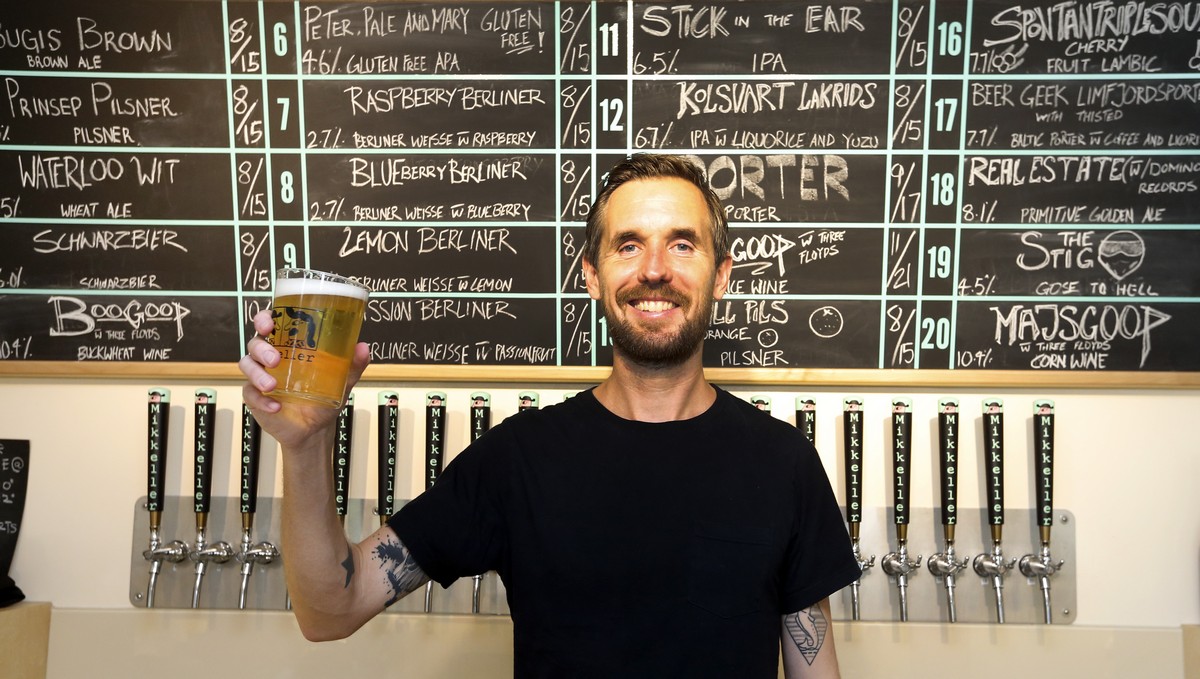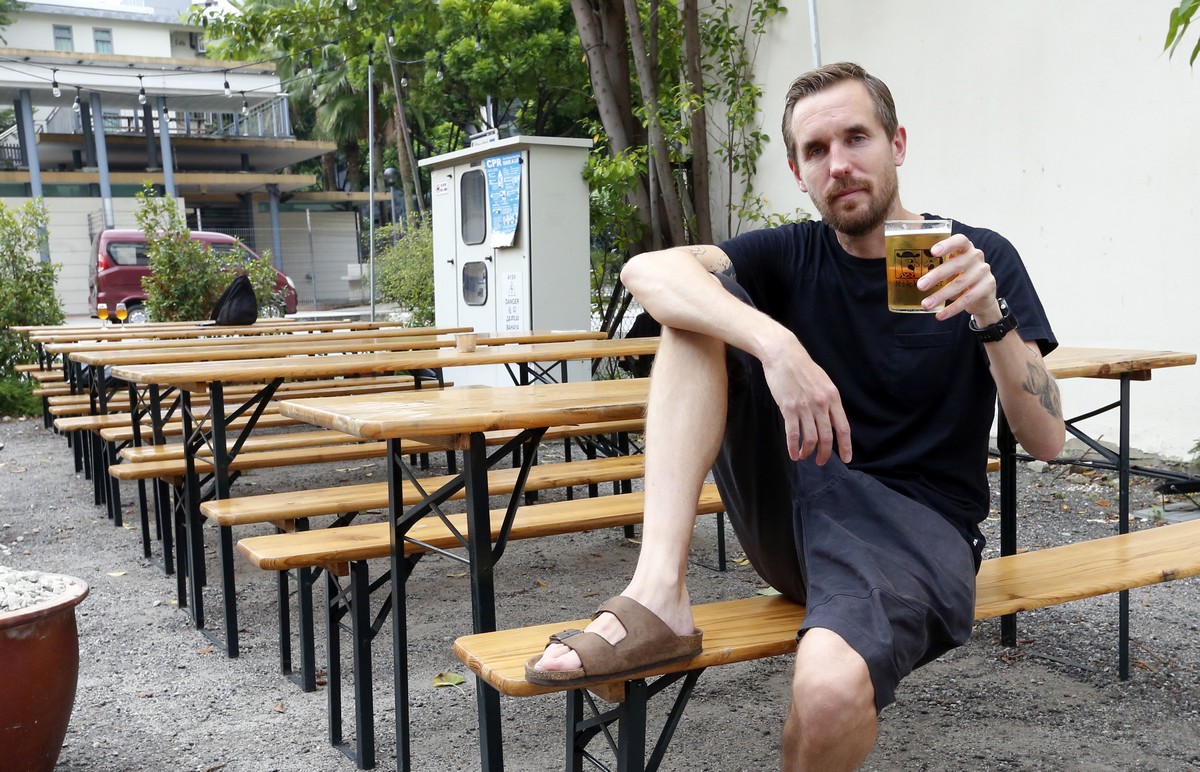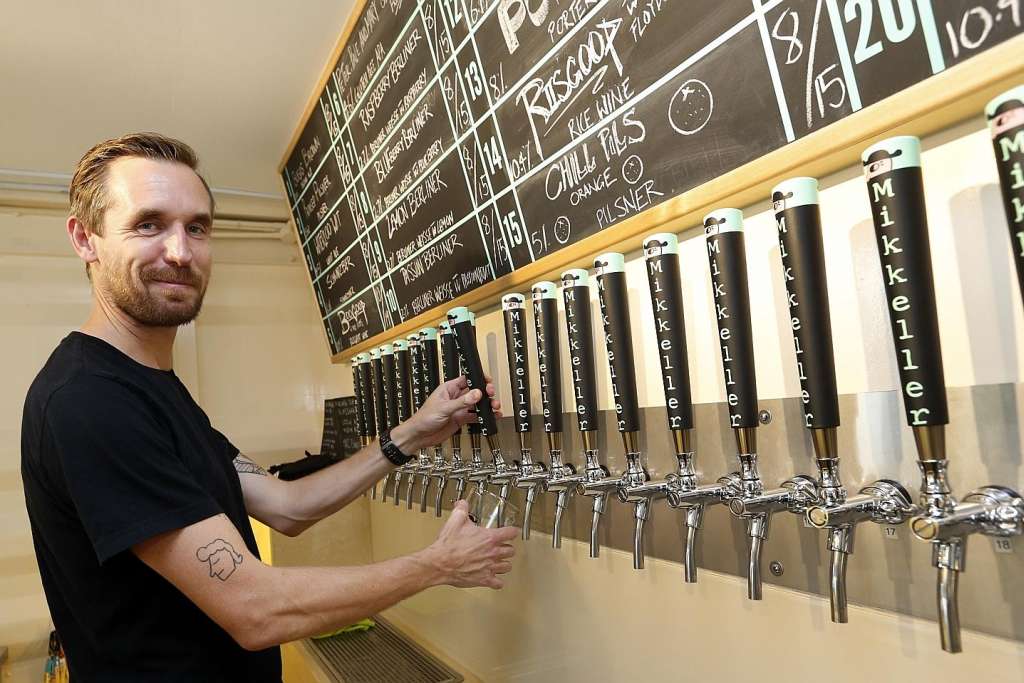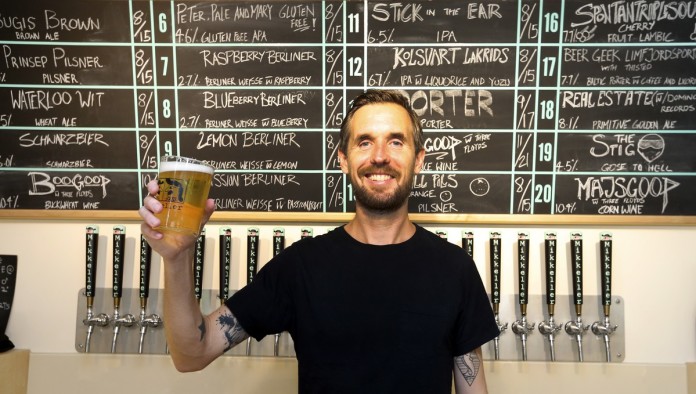Danish gypsy brewer Mikkeller, headed by owner and brewer Mikkel Borg Bjergso, is not afraid to experiment with unusual flavours in its beers.
The company has tried everything from a Vietnamese Kopi Luwak stout (made with coffee beans excreted by civet cats) to another stout variation called The Forager, made with US$10,000 (S$14,100) worth of black truffles.
Even its Berliner Weisse – a light, refreshing sour wheat beer – is brewed with fruit flavours such as lemon, blueberry and passionfruit.
Gypsy brewers do not have their own breweries and, instead, produce experimental beers around the world in breweries owned by other brands.
Unlike commercial beers, their unique brews are made in smaller quantities and challenge tried-and- tested flavours and methods.
Mikkeller uses five breweries, two in the United States and three in Europe.
Mr Bjergso, 41, sends extremely detailed recipes with the ingredients, temperature and water treatment specifications off to the brewers he works with, and they take it from there.
“My strength is in creating an idea and then the recipe, but I don’t always know how to make an idea a reality,” he says in an interview with The Sunday Times.
He was at the Mikkeller Bar in Prinsep Street recently for a quick pit stop and a Meet The Brewer session with his fans here.

“I don’t want it to sound wrong because I respect brewers a lot and they’re skilled at what they do, but I say you can train a monkey to brew beer because it’s pretty much just following a recipe.”
Focusing on the recipes allows him to continue pushing the envelope with flavours.
Recreating a beer that has already been done no longer excites him, as “the second time you do the same beer, you already know what it’s going to be like”.
So last year, he created more than 200 flavours of beers in various styles, adding that since the company started, it has made “more than 1,000 beers”.
But just 10 years ago, he was a high-school mathematics and physics teacher experimenting with hops, malt and yeast in his kitchen in Copenhagen.
Now, he is exploring low-alcohol and non-alcoholic beers, which have less than 0.5 per cent alcohol.
While the big brands do non-alcoholic beers, he says they “taste really bad”. Such beers are also something new that has not been explored among his counterparts.
“We’re pretty much the first brewery to do non-alcoholic beers that actually taste like beer,” he says.
He adds: “Sometimes I drink beer to get drunk, like everybody else, but for me, drinking beer is more about flavour. So if I can drink a good beer that has less alcohol, then I can drink more of it.”
Mikkeller Bar Singapore, which opened last year, is the second in South-east Asia. The first opened in Bangkok in 2014.
Its 20 taps rotate frequently, with core and seasonal Mikkeller beers, although beers such as the Bugis Brown, Prinsep Pilsner and Waterloo Wit are staples.
While a customer can walk in on any day and find a new beer, Mr Bjergso understands that others just want something familiar.
Even then, he relishes being able to shape the craft beer scene in Asia, unlike in the US, where he says “there’s already a lot of craft beer and a lot of hype”.
“In Asia, we can be involved in defining the whole craft beer scene,” he adds.

Then there are the naysayers of the global craft beer movement such as travel and food show host Anthony Bourdain. He has likened craft beer enthusiasts to zombies that over-analyse beers rather than enjoy them.
In response, Mr Bjergso says: “I don’t think Anthony Bourdain is the right person to judge. Instead, he should admit that he has no clue about craft beer and therefore should not talk about it. I don’t talk about handcrafted carpets, for example, as I don’t know anything about them.
“One of the things (Bourdain) says, that ‘the entire point of a bar is to get a little bit buzzed and not sit there f***ing analysing beer’, proves my point.
“So that’s like saying that the entire point of a restaurant is to ‘get full’ and not to enjoy food?”
While there are doubters, he is continuing with his expansion plans, even entering the restaurant world. He now has two ramen restaurants in Copenhagen, alongside a Texas-style barbecue joint that seats 400 people.
Still on the cards is a massive Mikkeller bar that will open in Los Angeles later this year.
He even intends to open one on the secluded Faroe Islands, located halfway between Norway and Iceland.
He acknowledges that it is probably not the best business decision.
“It’s a very small country with 50,000 people in total and there’s obviously no business case to do a bar, but it’s pretty much the most beautiful place in the world.”
It fits in with his company’s ethos of projects that are based on his personal interests, rather than the interests of the business.
“It’s just fun to do something new that people don’t expect,” he says with a nonchalant shrug.
He is modest about the empire he has created and admits that he never imagined it would become as far-reaching as it has.
“I started it because I wanted to make good beer – and that’s pretty much still what I want,” he says.
“I want to make good beers that I want to drink and good bars and restaurants that I want to go to.”
• Swig is a new weekly page dedicated to all drinks distilled, brewed, fermented and aged.

This article was first published on Nov 13, 2016.
Get a copy of The Straits Times or go to straitstimes.com for more stories.







